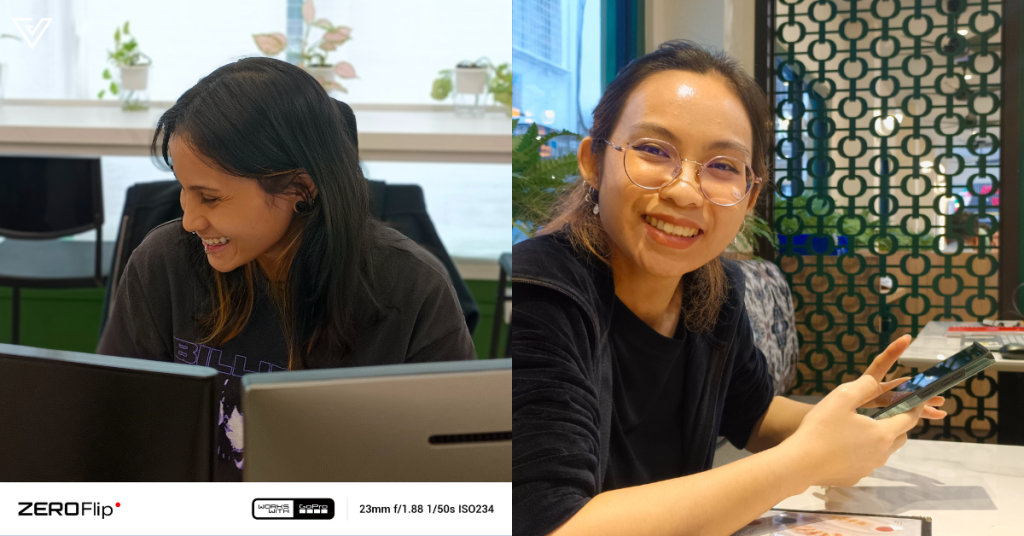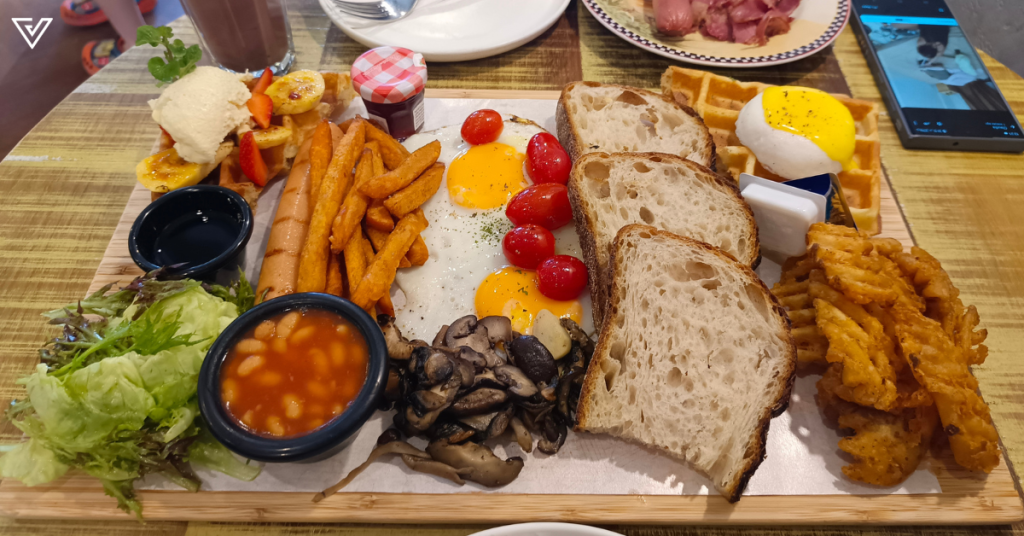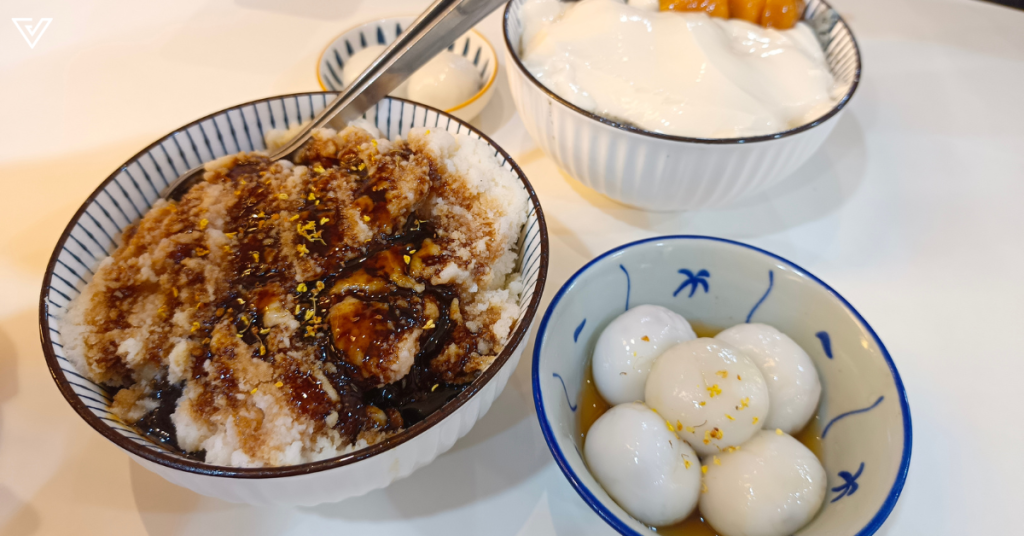Grab mandates full return to office from Dec 2, employees “disappointed” with the sudden move
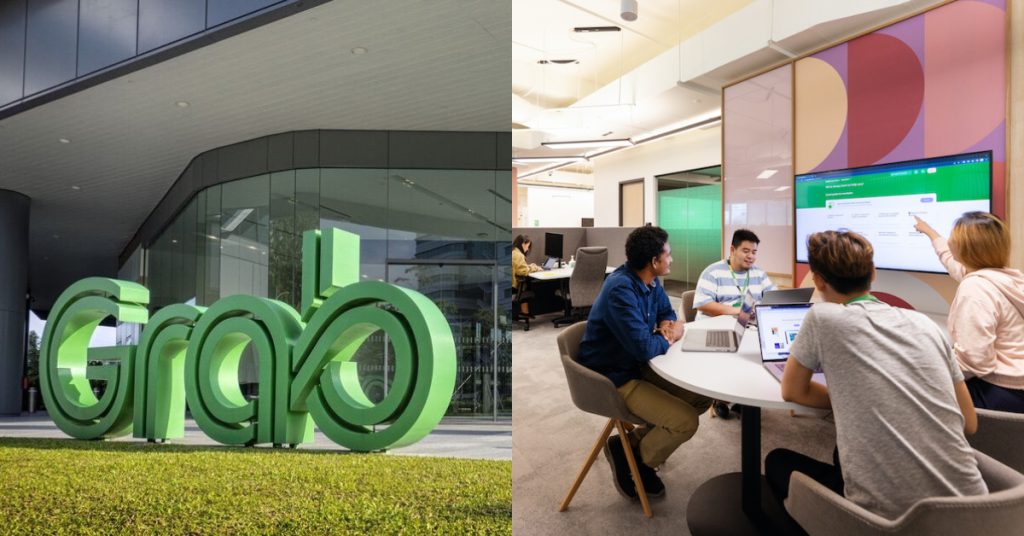
Grab will require its employees to work five days a week in the office starting in December, as announced during a company town hall this morning (October 24).
According to an article by CNA, employees who wished to remain anonymous confirmed that the mandate will take effect from December 2, 2024, onwards.
The reason for the shift, which was explained during the town hall, was to encourage more in-person collaboration and interaction at the office.
One employee shared with CNA that she had anticipated this change, as the company had been “ramping up” returning to the office since mid-2023 and tightened its policies regarding office attendance earlier this year.
“They said there would be disciplinary action against those who don’t comply (with return-to-office mandates),” the employee, who is in her 30s, told CNA. She has been working with the company for three years.
Currently, she spends three days a week in the office and two working from home.
More companies summoned employees back to office post-COVID
Grab’s new back-to-office policy came after tech giant Amazon announced a similar five-day office work mandate, which will start in 2025, last month.
This trend first came under scrutiny in 2022, when Tesla CEO Elon Musk imposed a strict return-to-office rule, demanding employees to clock a minimum of forty hours a week in the office.
When asked if Grab’s decision follows the same spirit as Tesla’s, the Grab employee said the company will “still accommodate flexible hours and exceptional personal circumstances”.
Another Grab employee in his 20s expressed his disappointment to CNA over the sudden decision. He explained that he found the current work arrangement—three days in the office and two days working from home—suitable for his workflow.
“Whilst I acknowledge the benefits that face-to-face interaction brings, there are days when I don’t have meetings, and do not see any particular benefit that work from office brings on such days,” he said.
He added that his daily commute takes approximately an hour each way, and returning to the office for an additional two days a week would mean an extra four hours of commuting time.
“I was looking to spend time in the evenings cooking dinner on my now extinct work-from-home days with the time saved from the commute.”
Grab has yet to respond to media enquiries about the move.
Also Read: Grab to invest S$4mil every year in response to drivers & riders’ call for better welfare
Featured Image Credit: Grab
M’sia now has a B2B digital halal marketplace for SMEs, created by Maybank Islamic & Borong
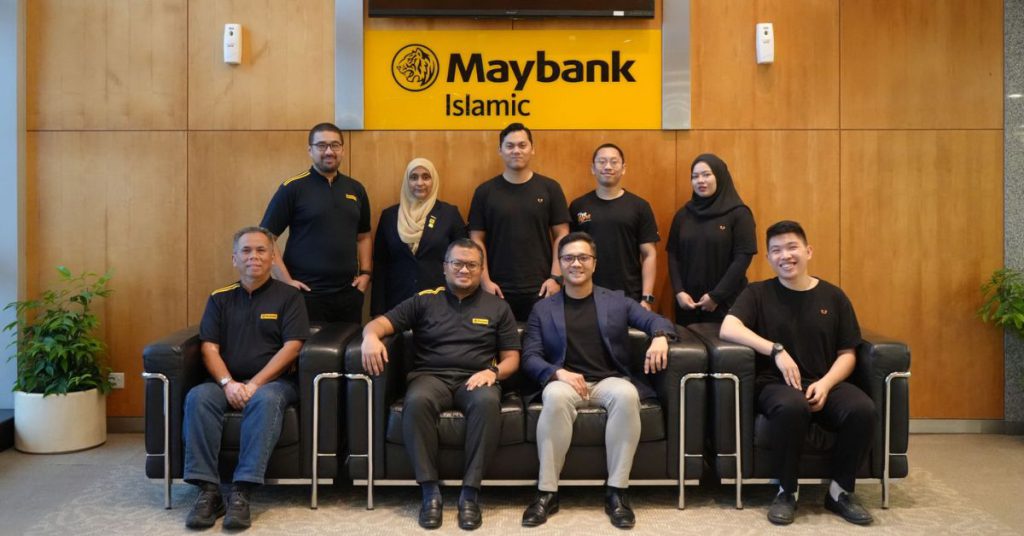
Borong, a B2B ecommerce platform, has partnered with Maybank Islamic to launch Salaam Market—claimed to be Malaysia’s first-ever digital marketplace for halal-certified products.
This platform is designed to help small and medium-sized enterprises (SMEs) easily access affordable halal goods while offering financial support and certification guidance, all in one place.
It’s a major step forward for local businesses looking to expand their reach both locally and internationally, positioning Malaysia as a leader in the global halal market.
Addressing challenges in the halal industry
The halal market is vast and growing rapidly. By 2030, it’s expected to be worth an impressive US$5 trillion globally, with Malaysia’s domestic market alone estimated to reach US$113.2 billion, it said in a press release today.
However, while opportunities are immense, SMEs in Malaysia and neighbouring countries, such as Indonesia, Cambodia, and Singapore, face significant hurdles.
High ingredient costs, complex certification processes, and limited access to working capital are just some of the challenges hindering their ability to grow. That’s where Salaam Market steps in, offering a seamless solution to these common pain points.
A seamless digital halal marketplace
At its core, Salaam Market is a one-stop digital platform that allows SMEs to source halal-certified products at competitive prices.
By directly connecting businesses with suppliers, the platform cuts down on costs and eliminates the need for middlemen.
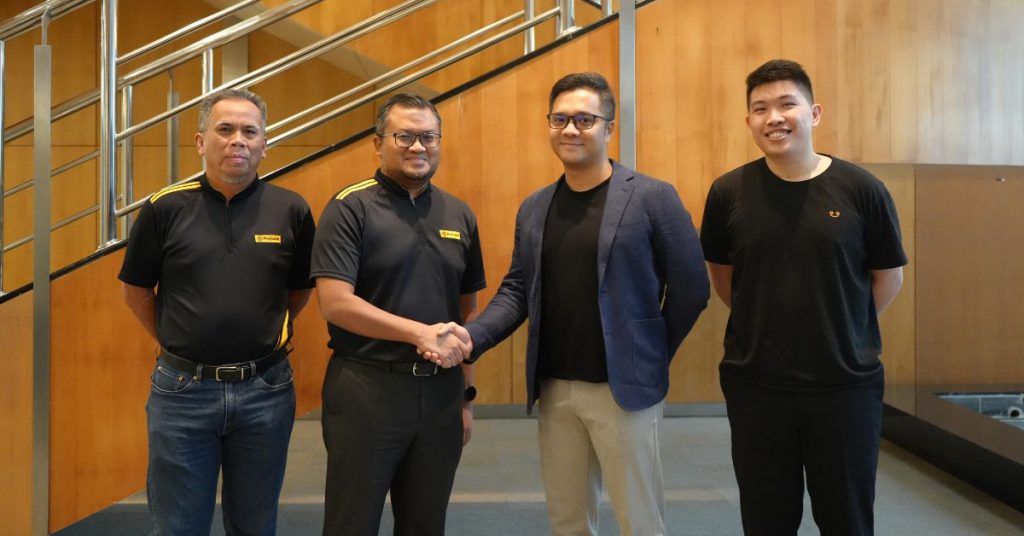
One standout feature of the platform is the lack of minimum order requirements, making it easier for smaller businesses to access certified halal ingredients without the burden of large upfront investments. This flexibility is crucial for SMEs, which often operate on tighter budgets.
With Salaam Market, businesses can also access financial services from Maybank Islamic, helping them overcome the financial barriers that have traditionally made it difficult to scale in the halal sector.
Supporting SMEs on their halal journey
Navigating the halal certification process can be daunting for SMEs, especially those aiming to expand internationally.
Salaam Market integrates in-house halal certification guidance, simplifying the process and ensuring compliance with Malaysia’s JAKIM halal standards—which are internationally recognised.
Beyond certification, the platform offers digital document management tools to make accessing halal markets—both locally and abroad—much more manageable.
“Not only [does] Salaam Market align with the country’s goal to become a global leader in halal compliance,” said Aizat Rahim, Managing Director and co-founder of Borong, “We also worked hard to ensure it addressed the key challenges for SMEs, which are affordability, financing, and certification, through the support of Maybank Islamic’s financing solutions while also being supported by JAKIM’s halal certification.”
As the global demand for halal products continues to rise, this collaboration ensures that Malaysia remains at the forefront of the industry, driving local businesses to new heights and enabling them to expand their reach across international borders.
- Read other articles we’ve written about Malaysian startups here.
Also Read: How this Malaysian SME overcame financial hurdles to grow their business with this 1 solution
Featured Image Credit: Borong and Maybank
These 7 teams beat 500 entries for MYHackathon 2024’s first cohort, won RM250k grants each
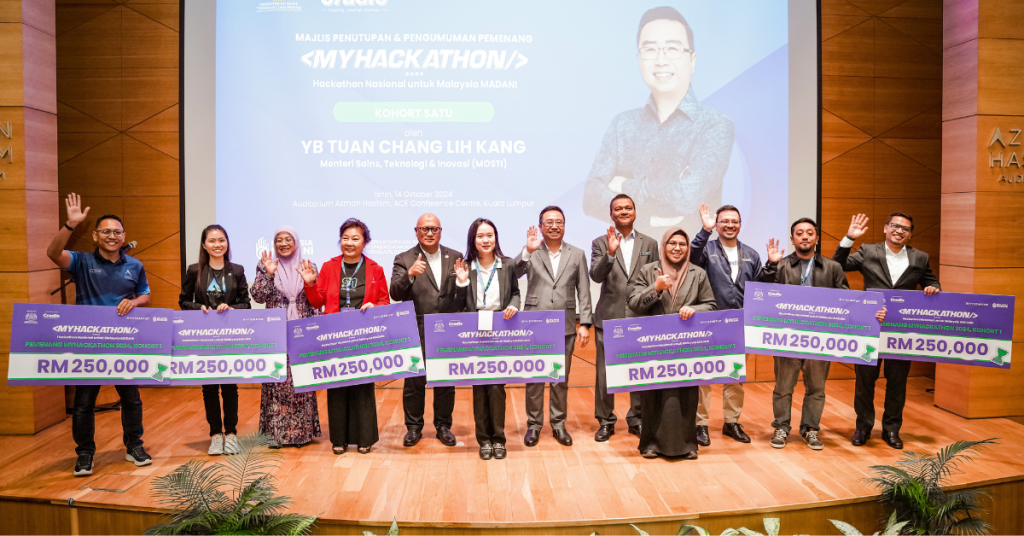
[Written in partnership with MYStartup, but the editorial team had full control over the content.]
“MYHackathon is not just a platform to test capabilities but also a strategic arena to discover new talents and generate innovative solutions for challenges faced by the government and related agencies.”
These are the words of YB Tuan Chang Lih Kang, our Minister of Science, Technology, and Innovation.
He’s referring to MYHackathon 2024, a national-level hackathon created by the Malaysian government to support the digitalisation of the Malaysian government’s service delivery to the public.
This programme is an initiative under MYStartup, organised by the Ministry of Science, Technology, and Innovation (MOSTI) and implemented by Cradle Fund (Cradle).
For MYHackathon 2024 Cohort 1, seven problem statements submitted by various ministries and government agencies were highlighted.
The programme successfully attracted over 500 entries from registered groups and companies across Malaysia, including Sabah and Sarawak.
All participants underwent a two-week boot camp and one-to-one mentoring sessions from world-class mentors before 23 finalists were selected for the final demo session.
This final demo was held on October 14 at the AICB Centre of Excellence in Kuala Lumpur, where seven winners were crowned.
Each will be receiving conditional grants of up to RM250,000 to develop their pilot projects, as well as one-to-one project implementation mentorship for the next 12 months. All winners will collaborate closely with respective problem statement owners to refine their solution implementation plans.
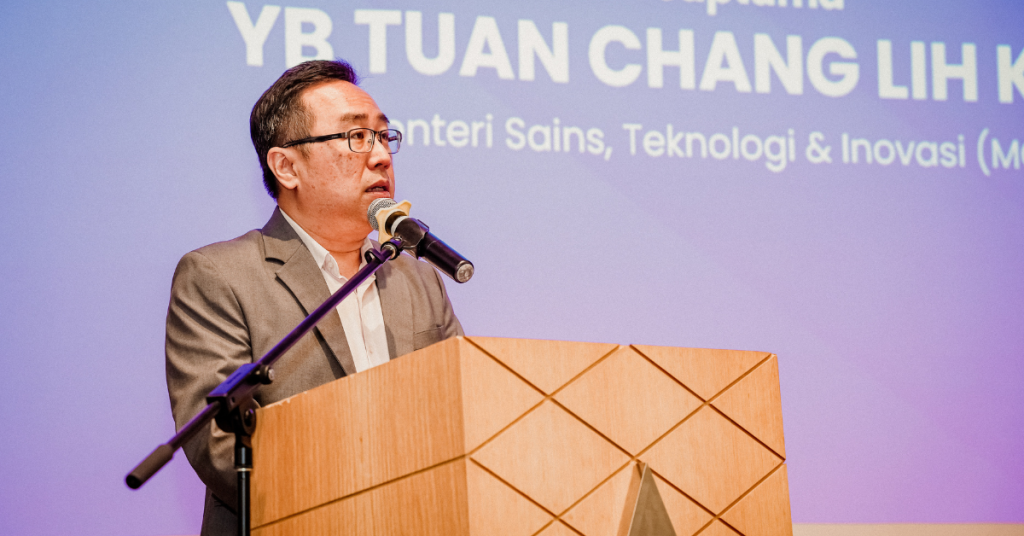
In his keynote address, YB Tuan Chang remarked, “I am very impressed with the quality of the solutions presented by the participants. These ideas are not only practical but also innovative, aligning with Malaysia’s commitment to becoming a leading economy in Asia and the MADANI economic vision.”
So, what are these solutions exactly?
Seven winners, seven problem statements
1. V-Cred
The first problem statement sought a digital solution to the problem of providing legal aid services to eligible citizens.
This prompt was submitted by Jabatan Bantuan Guaman, Jabatan Perdana Menteri (Legal Aid Department, Prime Minister’s Office).
The winner of this statement was V-Cred, a data analytics and software development company building AI solutions for experts working in enterprises.
According to their website, the startup started in November 2022 under the PETRONAS Innovation Garage (PING), an in-house startup incubator programme.
2. Prigo X
Looking for a digital solution for the problem of managing Public-Private Partnership (PPP) project proposals was Unit Kerjasama Awam Swasta, Jabatan Perdana Menteri U(KAS), which is the Public-Private Cooperation Unit.
The winning solution was from a team called Prigo X.
3. ParlimenAi
Submitted by the Malaysian parliament, the third problem statement sought a digital solution to the problem of recording and managing the proceedings of the Parliament session.
ParlimenAi is the team that stepped up to create an appropriate solution.
4. S1 ASIAPAC
One of the problem statements asked for a digital solution to the problem of managing and monitoring project and contract management work.
This was submitted by PR1MA, Kementerian Perumahan dan Kerajaan Tempatan.
The winner for this problem statement was S1 ASIAPAC. Established in 2017, they help companies achieve their business goals by bridging the gap between business vision and real-world technology implementation.
5. NGU Gen
The fifth problem statement was for a digital solution for the problem of receiving and managing people’s complaints.
The government agency that submitted this was Biro Pengaduan Awam, Jabatan Perdana Menteri.
The winning solution came from NGU Gen.
6. Team MVP
For Lembaga Tabung Haji, Jabatan Perdana Menteri, they were searching for a digital solution to the problem of managing and monitoring the implementation of CSR programmes more transparently, efficiently, and effectively.
The team with the answer to that was Team MVP.
7. TERRAAGRA
Kementerian Pertanian dan Keterjaminan Makanan submitted a problem statement looking for a digital solution to the problem of optimal rice planting and harvesting schedules.
TERRAAGRA’s solution was crowned the winner for this statement. TERRAAGRA is a digital agriculture platform that enables farmers and agriculture to obtain and use agronomic data.
A win-win situation
Since its launch in 2020, the MYHackathon programme has been held every two years. Over the years, it has successfully nurtured exceptional new talents among Malaysians, becoming a platform to foster cooperation, entrepreneurship, and critical thinking among participants.
Among the successful solutions developed under this programme is the ARTEMIS Robot from A2Tech, which develops robotic technology products with AI integration for early reconnaissance activities in Search and Rescue operations.
There’s also the Anti-Drone Detection System (DDS) from FlyBots Technology, which presents solutions to control drone intrusions intended for smuggling or unauthorised surveillance in areas with restricted access.
“The MYHackathon programme provides an opportunity for tech talents in Malaysia to seek solutions to various national challenges through creative and innovative approaches, aligning with the main goal of the programme to drive transformation and adapt digitisation in government services in Malaysia,” said Norman Matthieu Vanhaecke, Group CEO of Cradle.
In essence, these initiatives not only elevate the national innovation development agenda; they also help elevate local tech talents, providing them a platform to spotlight their capabilities. It’s a win-win situation that will overall push Malaysia forward in a rapidly changing world.
Also Read: This Microsoft Copilot workshop convinced me that AI can help content creators, here’s how
Featured Image Credit: MYStartup
The Period Co. believes S’pore needs alt period products, and not just ‘cos they sell them
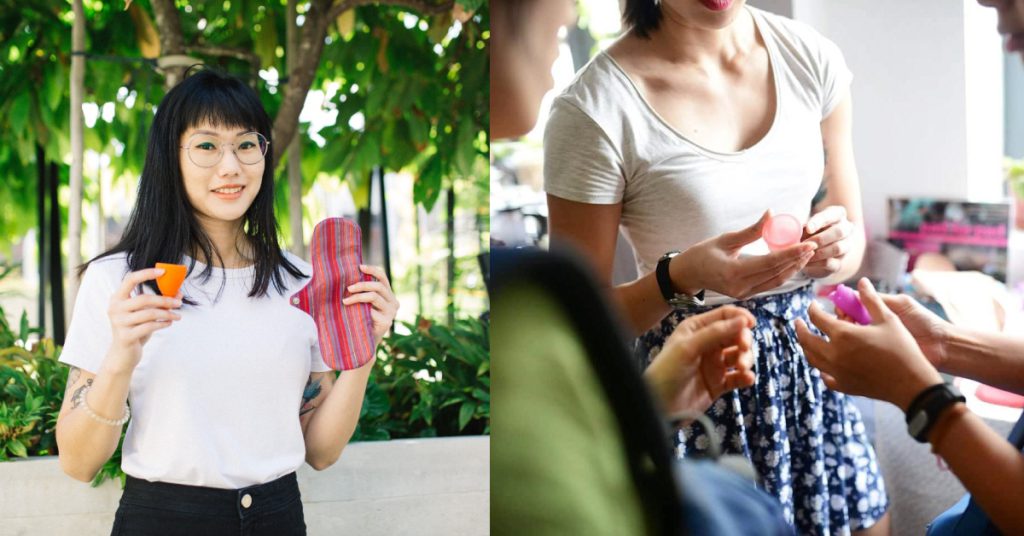
Upon getting our first bleed, we are taught how to use sanitary pads, panty liners, and the different lengths offered. We are also advised when to change our pads or panty liners to ensure they’re all clean down there.
However, some studies have claimed that pads and panty liners contain harmful chemicals, with many manufacturers being called out by the public and authorities, and consumers switching to alternative period products such as period cups and discs, reusable pads, and period undergarments.
That said, when we asked some of our female friends and family members, they said they wouldn’t use these products and would just stick to pads and panty liners.
This got us thinking: Are alternative period products even in demand, especially in Singapore and other Asian countries where pads are more commonly used?
We reached out to three Singaporean brands for their insights, but only one got back to us. Here’s what Ann Gee, co-founder of The Period Co., says about the scepticism around alternative period products.
Introducing The Period Co.:
Ann Gee first started the brand as a side hustle together with her partner back in 2015, where they started selling on Carousell. Previously known as LiveLoveLuna, The Period Co. has now evolved into an online distributing platform that aims to make alternative period products available to the Asian market.
Why do some switch to alternative menstrual products?
Like Gee, those who have made the switch often describe it as “life-changing”. She shared that she wanted to find a way to manage her period during an overseas mountain-climbing trip and came across menstrual cups on the internet.
While it did take her a while to use it correctly, given that there was not a lot of information and advice online at that time, Gee, who leads an active lifestyle, has been able to enjoy sports a lot more since then.
Aside from reaching out to The Period Co., we’ve also asked for inputs from alternative period product users in and out of Singapore, but only one consented to share their thoughts. 24-year-old Ali Fahizal shared that they started using menstrual cups after discovering their allergy to menstrual pads and panty liners.
I used to use panty liners every day and wonder why I’d get so itchy, and my skin would become inflamed. And if I scratch, I’ll get cuts, which hurt when I go to the toilet, and it was a nightmare.
I’ve been using the period cup for five years now, I’ll never go back.
Ali Fahizal, 24, Singapore-born student based in Australia
Safe to say, they have become “a pro” at using menstrual cups after some “finessing”.
Debunking myths
You might notice that most alternative period product brands, if not all, use the words “eco-friendly” or “sustainable” as their main selling point—given that the average woman disposes about 150 kilograms of single-use menstrual products, which contain 90 per cent plastic, creating an, in our opinion, obvious incentive here.
In the case of The Period Co., they focused on generating interest from those already interested in conscious living and zero-waste lifestyles, which turned out to be the right move for the brand to grow and establish its own online platform in 2019.
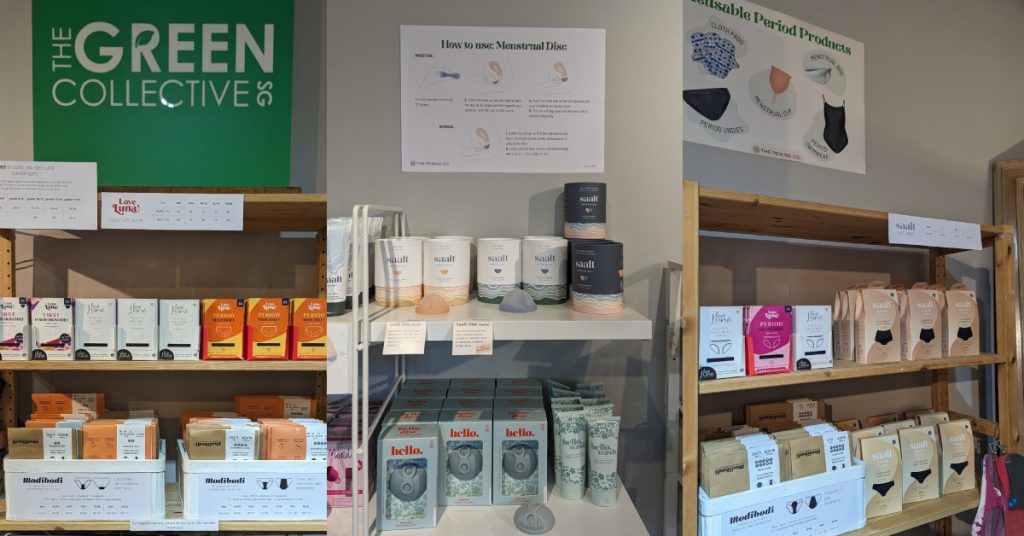
Gee added that the company has also grown their offline presence in sustainability retail stores, notably The Green Collective and UnPackt. This allowed them to gain over 13,000 orders from their online store and generate “a healthy number of sales” at their offline locations.
Ali also pointed out that rather than simply having an alternative option, people who switch to reusable menstrual products are driven more by morality than personal preference in a bid of the global “push” to become environmentally friendly.
However, that said, there are still misconceptions surrounding reusable menstrual products, which Gee debunks here:
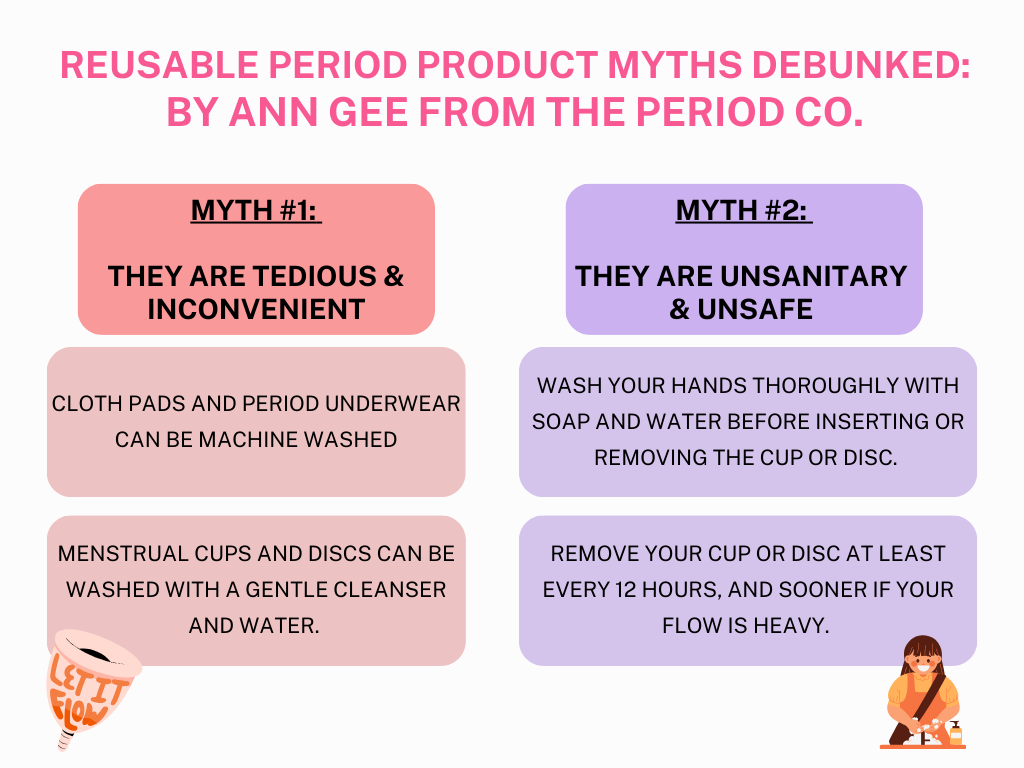
In a separate interview with CNA, a gynaecologist raised concerns about the risks when using menstrual cups, pointing out that bacteria can enter the bloodstream through the vagina when inserted.
In particular, one could experience a life-threatening condition called Toxic Shock Syndrome (TSS), which is caused by toxic bacterial infections.
Gee acknowledges the risks of TSS associated with internal menstrual products, notably tampons, period cups and discs, and emphasises that as long as the products are cleaned properly, it minimises the risk of bacterial infections.
Ali also pointed out that the risk of getting TSS from menstrual cups is lower compared to tampons and that you would be prone to the condition if you leave it in for days, which is not what it is intended for.
Many reusable menstrual product companies have been debunking misconceptions like the ones above since they started. Still, the lack of education seems apparent, especially in more conservative cultures.
However, Gee shared that more people are willing to talk openly about menstrual health over the years, with the increased awareness and market interest driven by adopters’ enthusiasm.
The alternative period product market is still growing
This brings us to two million-dollar questions: Are these companies making money? Is there a demand for alternative period products in Singapore?
For The Period Co., it’s a yes for both.
Gee shared that they were unsure of the demand for alternative period products in Singapore when they started. Hence, they used Carousell as a test platform and only introduced one alternative period product brand to gauge consumer interest.
“As we started small, we did not have to invest too much in it,” said Gee, adding that it minimised their risks and costs if the business did not work out.
Despite low demand initially, her brand started gaining traction on social media, and sales and inquiries increased. This gave them the confidence to launch their online platform and expand their product offerings with other reusable period products like period underwear.
“As such products were similar to normal underwear, they did not have a steep learning curve, and customers were more willing to try them if they were not ready to try menstrual cups,” explained Gee. This was the right move, allowing the brand to achieve profitability.
She highlighted that the Singaporean market has become more receptive to alternative period products, thanks to the internet and social media. In particular, the younger audience is more open to these products as they seek better ways to manage their periods in line with changing lifestyles.
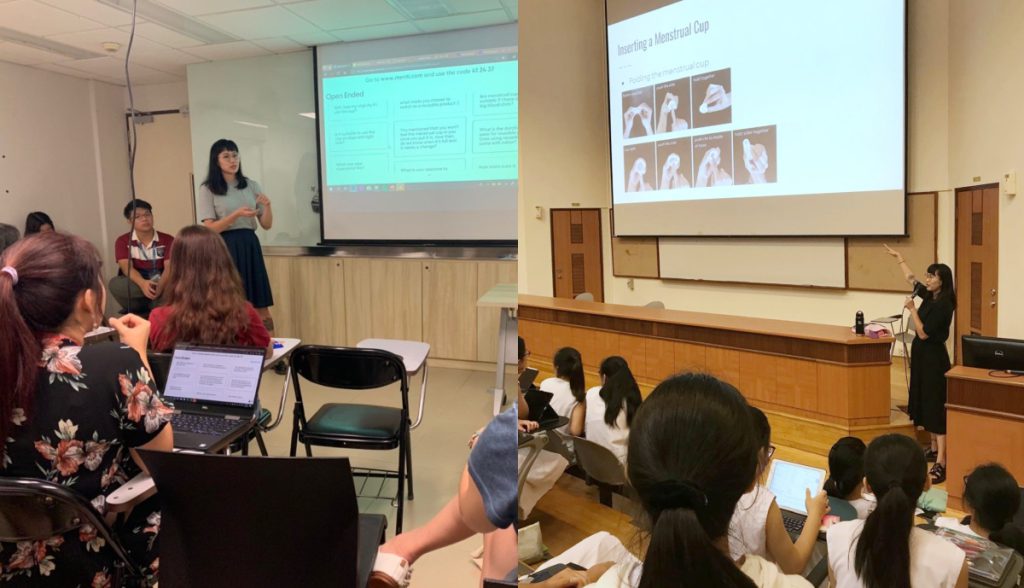
However, they have not become the “de-facto” period product people turn to. Ali, who was born in Singapore and is now based in Australia, pointed out that not many people use menstrual cups as often, even in “less conservative countries”.
They also raised concerns that menstrual cups may not be accessible for those with physical disabilities, making pads the easier option to use.
Convenient products definitely have their place! It’s not a one size fits all solution, but I do think menstrual cups have lots of benefits and those who are willing and can, should definitely try the switch.
Ali Fahizal, 24, Singapore-born student based in Australia
Gee added that there are still opportunities for growth within the market as more people learn more about these alternatives and are interested in trying them.
“As these products become more commonplace, we look forward to seeing how companies can further improve and iterate to make them easier to switch to.”
Embark on your startup journey with MAS-regulated ANEXT Bank, one of Singapore’s first digital banks for SMEs.
- Learn more about The Period Co. here.
- Read other articles we’ve written about Singaporean startups here.
Also Read: Feminine health is still a taboo in S’pore, this couple wants to break it with their startup
Featured Image Credit: The Period Co.
Threat of losing your job to AI is finally real as Claude can now use a computer like a human

Disclaimer: Unless otherwise stated opinions expressed below belong to the author.
Anthropic has just presented a significant update to its Claude AI model called “computer use”—which does exactly what it says: it uses a computer like a human.
It can see the screen, understand what it sees, navigate various software applications, and use a mouse and keyboard to perform tasks required of it.
Unlike existing automation algorithms, it can adapt to what it sees on the fly and search for information on its own, allowing it to work with less supervision. Bearing in mind that it’s only in beta at the moment, it’s not a stretch to think that within a mere few iterations, it’s going to be able to perform most tasks without any human input.
Here’s how it looks like in practice, after being asked to search for company details in an Excel spreadsheet or a CRM:
While the method of taking a screenshot and reading it may appear rather basic at the moment, it does the job and can be automated easily.
Besides that, you can employ such a system to work for as long as it has to to complete the request, while it takes no breaks, eats no lunches, doesn’t have to visit the toilet or go to sleep, and can pretty much do it 24/7.
Even if initially slow, the cost benefits of employing a machine to perform office tasks that are currently performed by humans are enormous. Tens of thousands of dollars in human effort could be replaced by US$1,000-2,000 worth of hardware, Internet access, and electricity.
Sounds like a no-brainer, which is why it should worry those whose job mainly requires the completion of relatively mundane office tasks.
Requirements for humans are going up
Unless you can deliver some unique, intellectual value as a human being, having a career as a white-collar worker may soon no longer be an option for most.
It can also undermine millions of entry-level jobs currently taken by young workers, who start with relatively easy but boring office drudgery before climbing the ranks to take positions requiring more creative input and greater responsibility.
The pressure on skill development is nothing new, of course, and the days when corporations would take in fresh graduates en masse only to teach them what they had to do in house are long gone.
But now you’re going to have to compete with an intelligent bot which can control any software suite it is trained at far better than vast majority of humans—and far more efficiently too.
Some years ago you could get away with basic knowledge of Microsoft’s Office suite. Soon, it may no longer matter if you’re an Excel whiz or can do magic using Adobe software, because AI will be a master in all of these and more.
We can’t compete against machines that can be infinitely trained. At least not on skills.
Better jobs for better humans
These developments are not without positives, though. As intelligent computers take over the most draining tasks, somebody still has to direct them to do what’s required. And that somebody will, at the end of the day, be human.
In other words, workers of the AI era will be required to be more engaged and better understand the business, before directing the artificial workers to do what’s necessary.
This means less boring jobs, less stressful work and improved pay, which always follows higher performance.
Unfortunately, it’s hard to say how many people will be required to do these jobs.
Are companies going to be employing as many as today, but all in more creative work, thus multiplying the output by the value coming from AI automation? Or is the technology going to radically reduce the headcounts for companies to generate the same output at a much lower cost?
The truth is probably somewhere in between, which would still cost many people their career opportunities, although those still employed will enjoy much better conditions and pay.
Either way, until now we merely discussed the future risks of AI taking regular jobs. Yes, many algorithms have been employed in human service for years, even decades. But it’s the first time that we’re on the verge of unleashing one that can perform the very tasks that millions depend on a living for.
The consequences of which we can no longer ignore.
Also Read: Are we safe? AI bot tries to rewrite its own code to cheat the limits imposed by researchers
Featured image: iLexx / depositphotos
This M’sian couple quit their jobs to start Tedboy in Bangsar, now it’s grown to 5 outlets
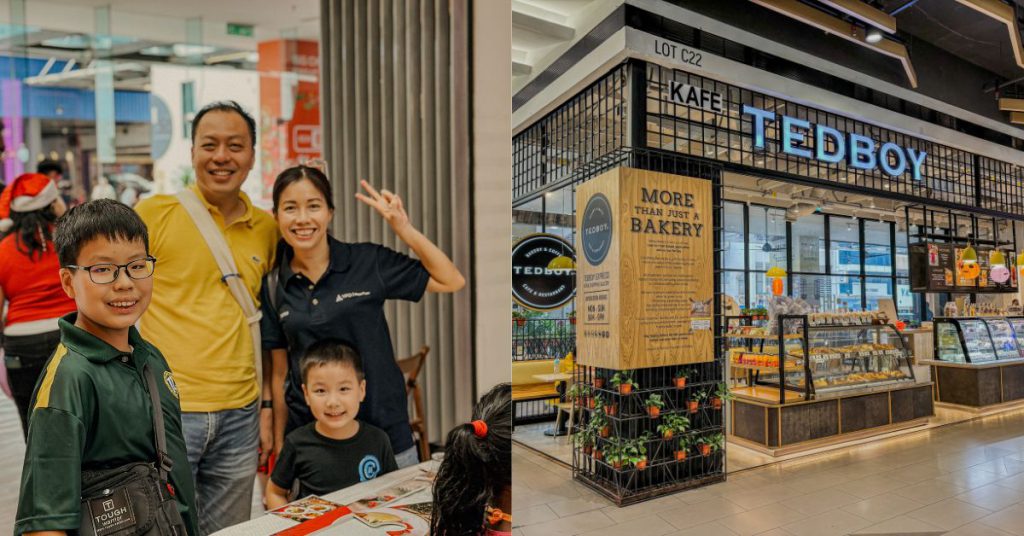
When Edward and Patrina, a husband-and-wife duo, welcomed their first child, Ted, they had no idea that this little bundle of joy would become the inspiration behind their next big adventure—Tedboy.
Edward, a former chemical engineer, and Patrina, a former pharmacist, had no culinary experience. Despite this, the couple embarked on their journey with one goal in mind. They wanted to create a cosy bakery that served fresh, healthy food—something they enjoyed during their travels abroad.
Their story began with a passion for quality food and a desire for a career change to support their growing family.
A baby, a bakery, and a dream
The birth of Ted sparked the idea that it was time for a change. As new parents, Edward and Patrina found themselves obsessively reading food labels, wanting nothing but the best for their little one.

“As we get more involved in the food business, we realise most things you cannot pronounce on the labels of food packaging are chemically derived, so the less, the better,” they told Vulcan Post. That discovery motivated them to create food that they would feel safe giving their own child.
With a new baby and a fresh perspective on life, they decided to take the leap. In a whirlwind of energy and excitement, Tedboy officially opened its doors when Ted was just six months old.
Their first store in Bangsar Telawi became a place where parents could feel at ease knowing the food was not only delicious but also made with clean, wholesome ingredients. It was a cosy spot to grab freshly baked goods and a cup of coffee while knowing their family would be well-fed.

From one store to many
What began as a small, family-driven project has grown over the last 12 years. Loyal customers who valued quality and affordability helped Tedboy flourish.
The bakery now boasts five retail locations across Klang Valley, three within Standard Chartered Bank offices catering to employees, as well as an ecommerce platform and a B2B arm.
This journey was built entirely on their own, without external funding, a decision that was both challenging and rewarding, said Patrina.
One notable moment for them was when they almost entered the franchise business. Negotiations with an overseas bakery chain fell through when the other party refused to adapt their concept to fit the Malaysian market.
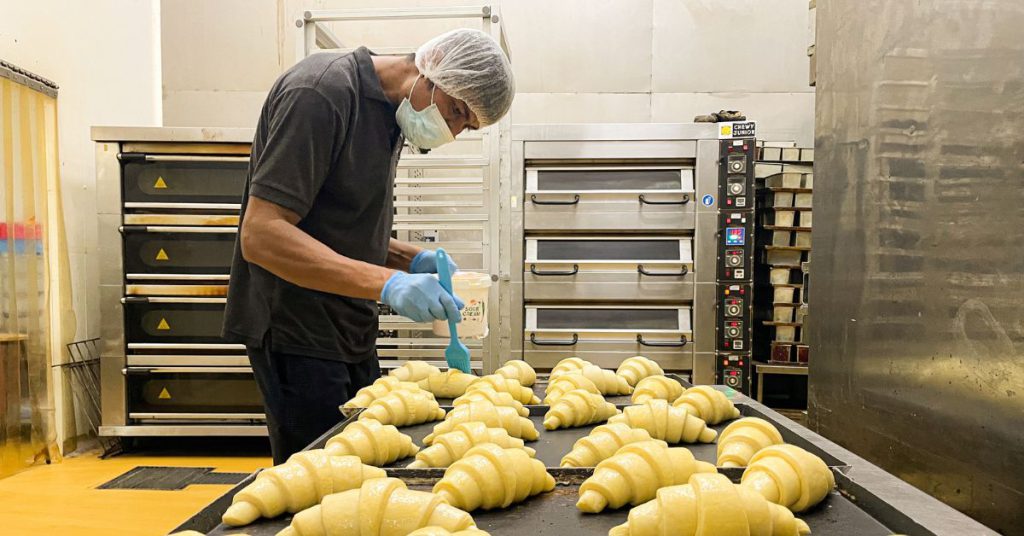
While the deal didn’t pan out, Edward and Patrina took this as a lesson in perseverance and self-reliance. They decided to go it alone and build their brand from the ground up—an effort that has clearly paid off considering that they have sustained themselves in the F&B industry for 12 years.
Throughout the ups and downs of running a business, the one constant for Tedboy has been its people.
During the COVID-19 pandemic, they kept their central kitchen operational and maintained all their staff, even though it hit their reserves. This decision was based on their belief that they would be better positioned to pick up where they left off once the market reopened.
The founders said of this, “Business is an energy exchange. If we prosper, our people will prosper too.”
Sticking to their roots
One of Tedboy’s core values is its commitment to using better ingredients, even though this presents its own set of challenges.
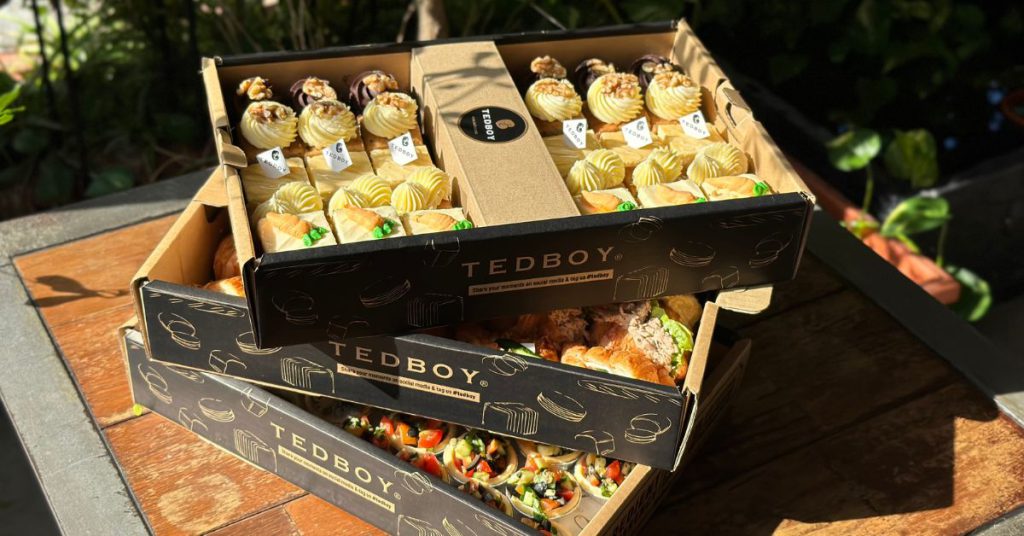
Edward and Patrina continue to grapple with rising prices of dairy, fruits, and raw chocolate, which affects their ability to keep prices low while maintaining high standards.
Yet, they’ve chosen not to compromise on quality. Everything is baked fresh daily, and they’ve even secured halal and HACCP certifications for their central kitchen, ensuring food safety and hygiene.
“I always tell our team, any complaint is a chance to improve. We owe it to our customers to listen and adjust,” said Patrina.
This attitude of continuous improvement has won them a loyal fan base, with one example being a customer from Kajang who has been ordering gluten-free bread from them for years due to health conditions.

Tedboy Express to meeting corporate needs
While the bakery started as a full-fledged offering, Tedboy also expanded with its Tedboy Express grab-and-go concept, catering to the working crowd who needed quick, nutritious meals.
Over the years, these Express stores began to offer more selections, blurring the lines between the two concepts. Today, Tedboy offers a variety of options, from fresh pastries and hot meals to grab-and-go coffee.
Their Jaya One outlet offers the most complete experience to date, featuring a designated kids’ play area that allows parents to enjoy a peaceful meal while their children stay entertained.
The store is also large enough to host birthday parties and other events, further cementing its role as a community hub.
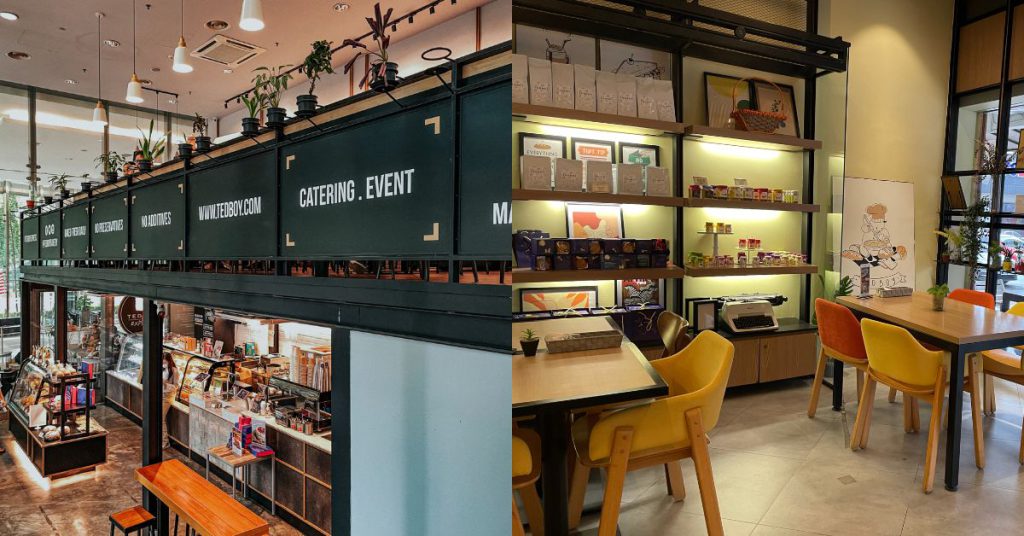
Tedboy has also carved out a niche in the corporate world. While they’ve stayed away from the saturated traditional catering business, they’ve found success in offering convenient, presentable, and customisable corporate meals.
Their central kitchen allows them to meet dietary restrictions with short notice, ensuring that everything is fresh and delivered on time—a crucial aspect of corporate meetings and events.
The local bakery for the long run
Looking ahead, Tedboy is focused on growth, but in a thoughtful and sustainable way. They’re currently exploring OEM (Original Equipment Manufacturer) products for multichain stores as a way to expand without overextending their retail operations.
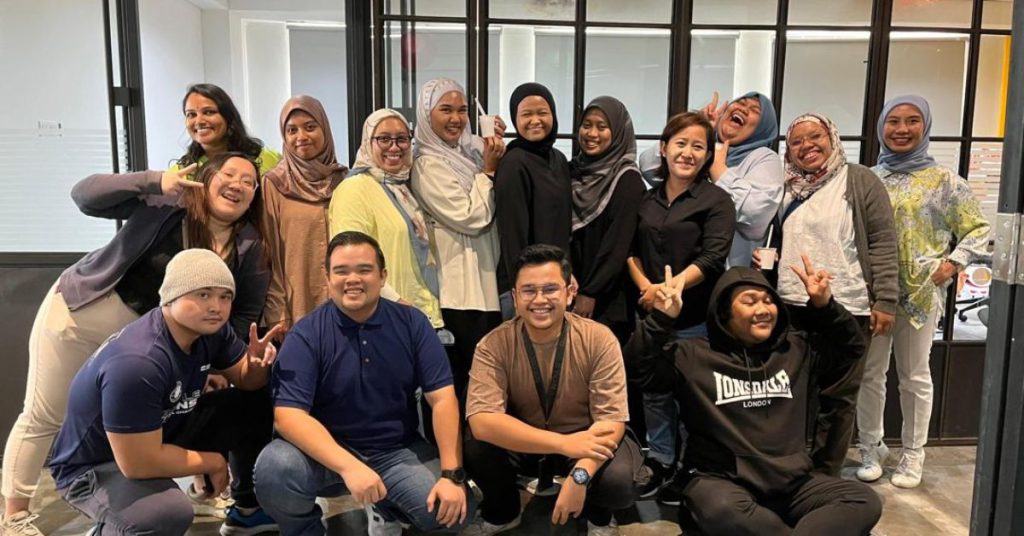
Franchising is another option they’re considering, as they receive frequent enquiries about how others can replicate their success.
Despite these expansion plans, Edward and Patrina remain grounded. “We’re not [ones] to pitch 10 times growth just to get investors in,” said the founders. “We grew organically and slowly, and that’s how we plan to continue.”
Tedboy may not be the trendiest or sexiest brand on the market, but that’s exactly how Edward and Patrina like it. They see their business as a long-term commitment to feeding the community in the best way possible.
“We’re like the coffee shops that are the heart of the nation,” said Patrina. “We’re the local bakery that’s here to feed you—honestly, wholesomely, and for the long run.”
- You can learn more about Tedboy here.
- Read other articles we’ve written about Malaysian startups here.
Also Read: SDEC 2024 will explore the latest trends in semicon, AI & ecommerce, here’s how to join
Featured Image Credit: Tedboy
Infinix ZERO Flip: At RM2,999, this might be the best flip foldable phone I’ve ever tried
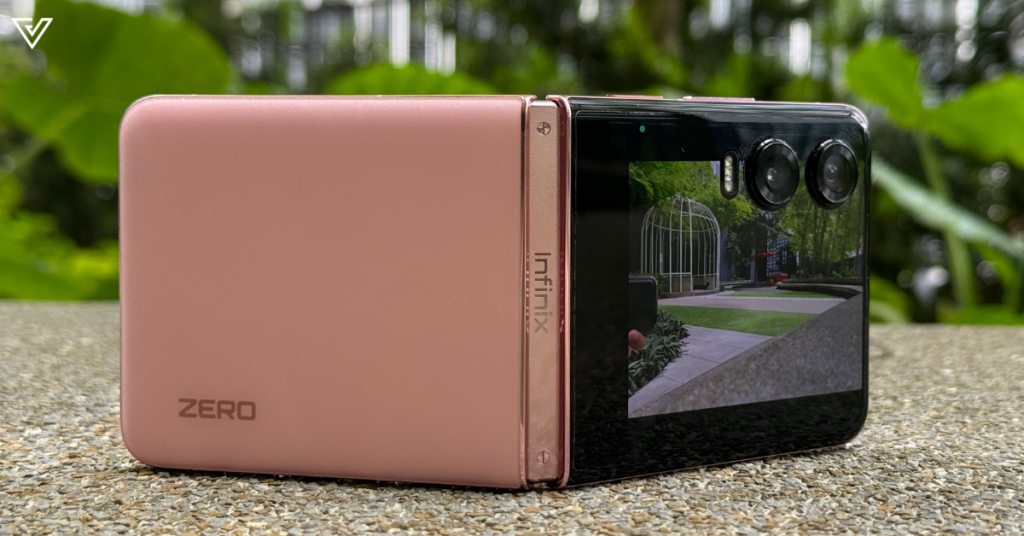
I never thought I would see the day where I am ranked in the top three globally for any game, but alas, the day has come, with JumpUp.
Given, this is a game that only seems to be playable through the cover screen of the Infinix ZERO Flip. Still, I want you to know that I think I’ve genuinely spent upward of five hours on this game, all in an effort to be the top player in this game.
There is honestly so much I can say about this game (like how I discovered an Easter egg that basically gives you points for free that honestly should be nerfed), but well, I’m not here to review JumpUp. No, here’s my review of the phone—Infinix ZERO Flip.
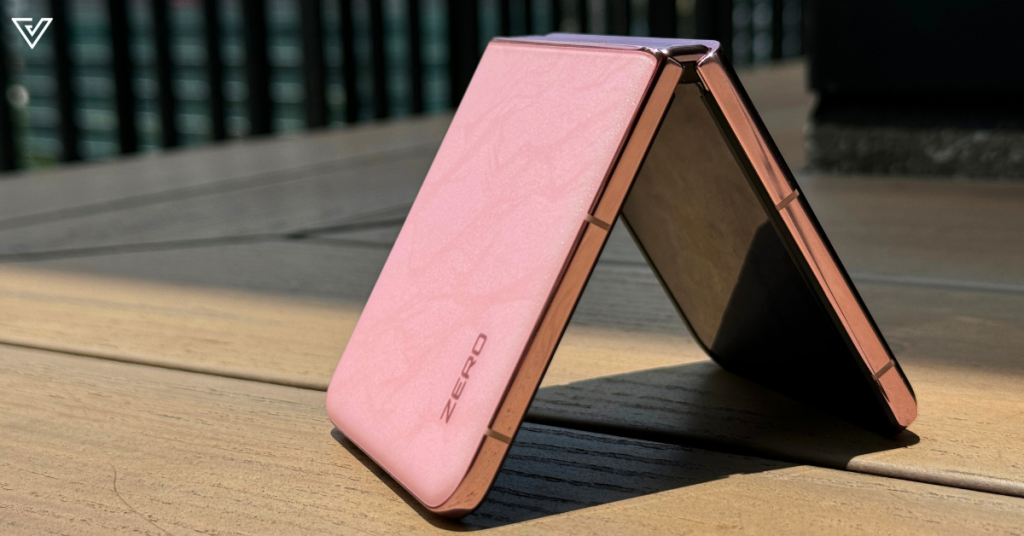
First time’s a charm?
With the ZERO Flip being Infinix’s first foray into flip phones, I must say my first impression was: I’m impressed.
Coming in the beautiful “Blossom Glow” colourway, the back looks like a simple pink cover at first, but upon closer inspection, it actually features a nice, slightly textured marbled design with a matte touch.
Sporting a 3.64-inch cover, the foldable reveals a 6.9-inch screen when opened up. I’m happy to report that the hinges are nice and smooth, offering free hovering from around 30° to 150° before the phone snaps shut or falls open completely.
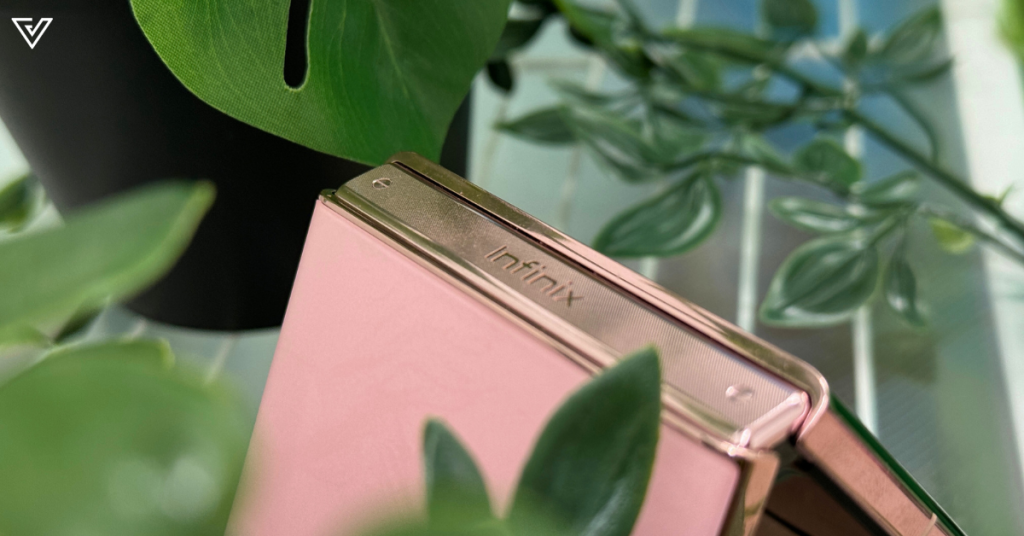
It’s not too tight, which I like, but some people may worry about it loosening up over the years. That said, the Infinix ZERO Flip promises that its 400,000-fold hinge is designed for longevity.
On the topic of durability, the device’s exterior is made from scratch-resistant Corning Gorilla Glass Victus.
Under the hood, the phone sports a decent 4,720mAh battery and MTK D8020 6nm chipset.
Back to the ZERO Flip’s cover screen, it features something Infinix calls Dynamic MultiView Display, which offers customisable 3D animated pets and quick shortcuts to popular apps like TikTok, YouTube, and WhatsApp.
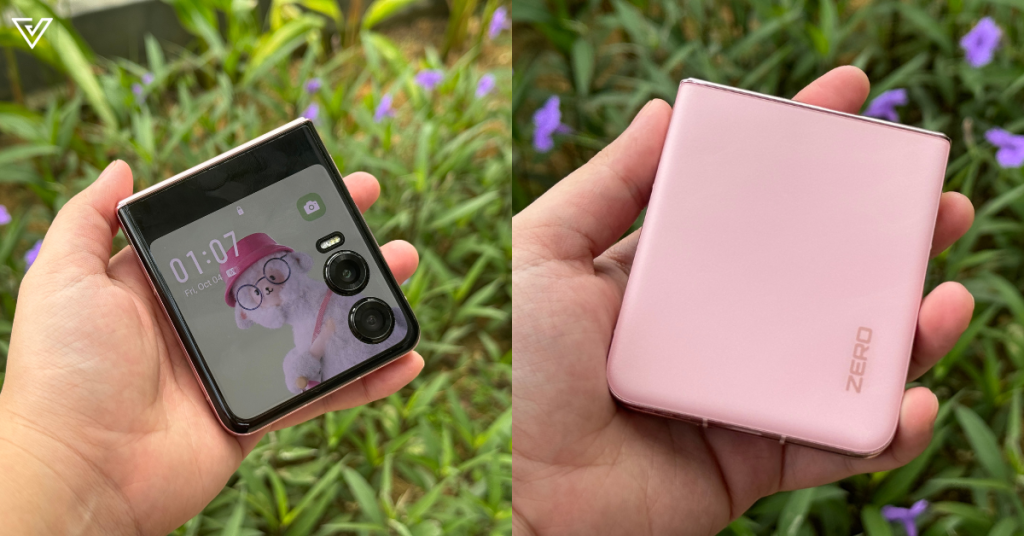
Admittedly, the pets (which include an alpaca, dachshund, penguin, brown bear, and Siamese cat) don’t do much besides looking cute, but that alone is more than enough. These animals also make another appearance in JumpUp, the game I can’t stop talking about.
Better photography than I expected
I must say, I feel like I have a negative bias against Infinix’s photography. I’m not sure why, but prior to this, I’ve developed an opinion that the brand’s photographic capabilities are on the lower end.
Yet, the Infinix ZERO Flip proved me wrong. Featuring a dual-camera setup with a 50MP wide and 50MP ultrawide camera, the specs are relatively impressive for a foldable flip phone.
But the star of the show is the AI processing. The main camera is called “AI Camera”, and for good reason. The processing really makes pictures look like a DSLR-quality image, with beautiful colour correction applied. It’s able to balance light really well, too, and bring out the vibrancy in colours intelligently.
I will say that I prefer the phone camera more for portraits; landscape pictures without a primary subject do fall a little flat with this phone.

With it only having two cameras and no telephoto camera, though, I must say that zoomed-in images on this phone leave much to be desired.
And of course, as with any clamshell foldable, the dual-screen preview function is a key USP of the phone. Enabling users to see themselves on the external display, it’s perfect for high-quality selfies or timed group shots.

Another key feature of this phone is its DV mode. Designed for vloggers, the ZERO Flip transforms into a mini vlogging camera in its flipped state, offering an easy grip like those old-school digital video camcorders.
Adding to the DV mode, the phone offers a variety of video templates and filters for users to create their own retro vlog. Complete with music, the resulting videos are honestly pretty cute, albeit not cinematic masterpieces.
According to Infinix, its ZERO Flip is the only device in its class to feature 4K ProStable video capabilities on both the front and rear cameras.
Working with GoPro, this phone also allows seamless connectivity with the GoPro app. In any case, it seems to be a phone designed with various videography capabilities in mind.
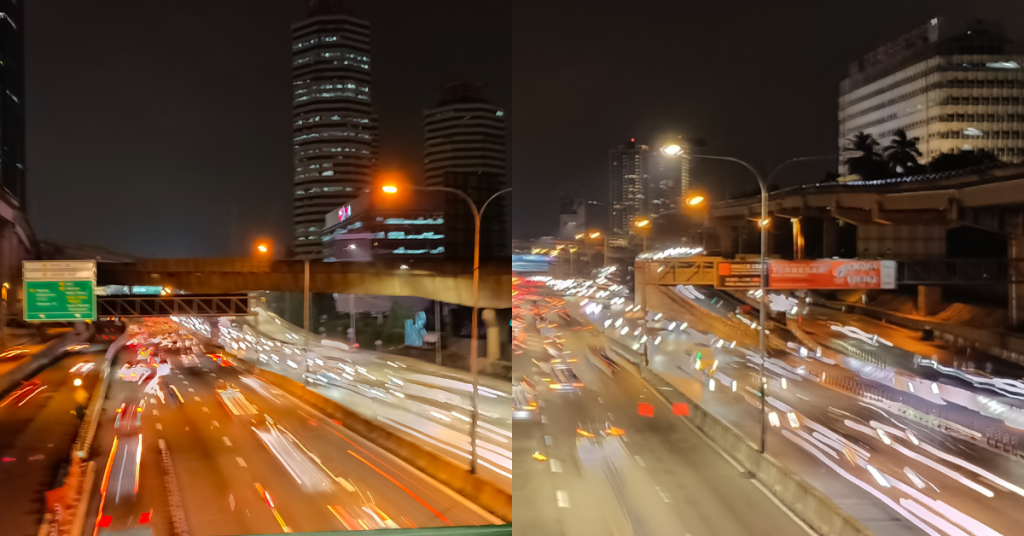
Not without its cons
As much as I surprised myself with how much I liked the phone, there were little quirks about it that annoyed me. Such is love, am I right?
Apps on the cover screen do freeze from time to time, especially with the JumpUp app. My quick fix is removing the said app from the cover screen, and then re-adding it, as there doesn’t seem to be a way to close apps on the cover screen otherwise.
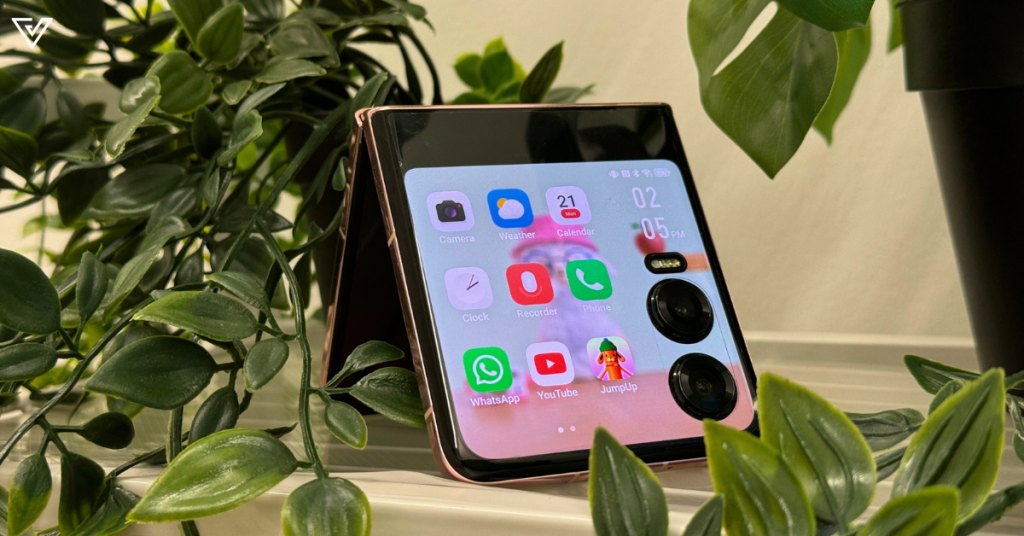
And one thing about this phone is that it gets hot. Like, worryingly hot. It gets hot when I play JumpUp, it gets hot when I watch videos for too long, and it gets hot when I’m taking timelapse videos.
Another thing is, you can’t access the full suite of camera features on the cover screen. Unlike the Samsung Z Flip5, for instance, you can’t switch the camera controls to the cover screen when previewing. You can only just use it as a preview.
At the same time, I kind of admire the limited nature—it knows what it is, and it’s not trying to do more than that.
The verdict
Its price point of RM2,999 makes it pretty much the most affordable flip phone on the Malaysian market.
If you’re someone who loves the clamshell build in a phone, I really think Infinix has done a good job with this phone. It doesn’t offer insane performance or specs, but it has truly become one of my favourite phones that I’ve tried in a while.
Yes, it’s not perfect, and perhaps as a daily driver some issues may crop up, but for a foldable flip phone, I think it’s a pretty great option.
| Pros | Cons |
|---|---|
| A nice build with smooth hinges | Gets worryingly hot |
| Incredible AI image processing | Battery life could be better |
| Relatively affordable for a foldable phone | The cover screen is somewhat limited |
VP Verdict is a series where we personally try and test out products, services, fads, and apps. Want to suggest something else for us to try? Leave a comment here or send the suggestion to our Facebook page
Also Read: This Microsoft Copilot workshop convinced me that AI can help content creators, here’s how
Featured Image Credit: Vulcan Post
